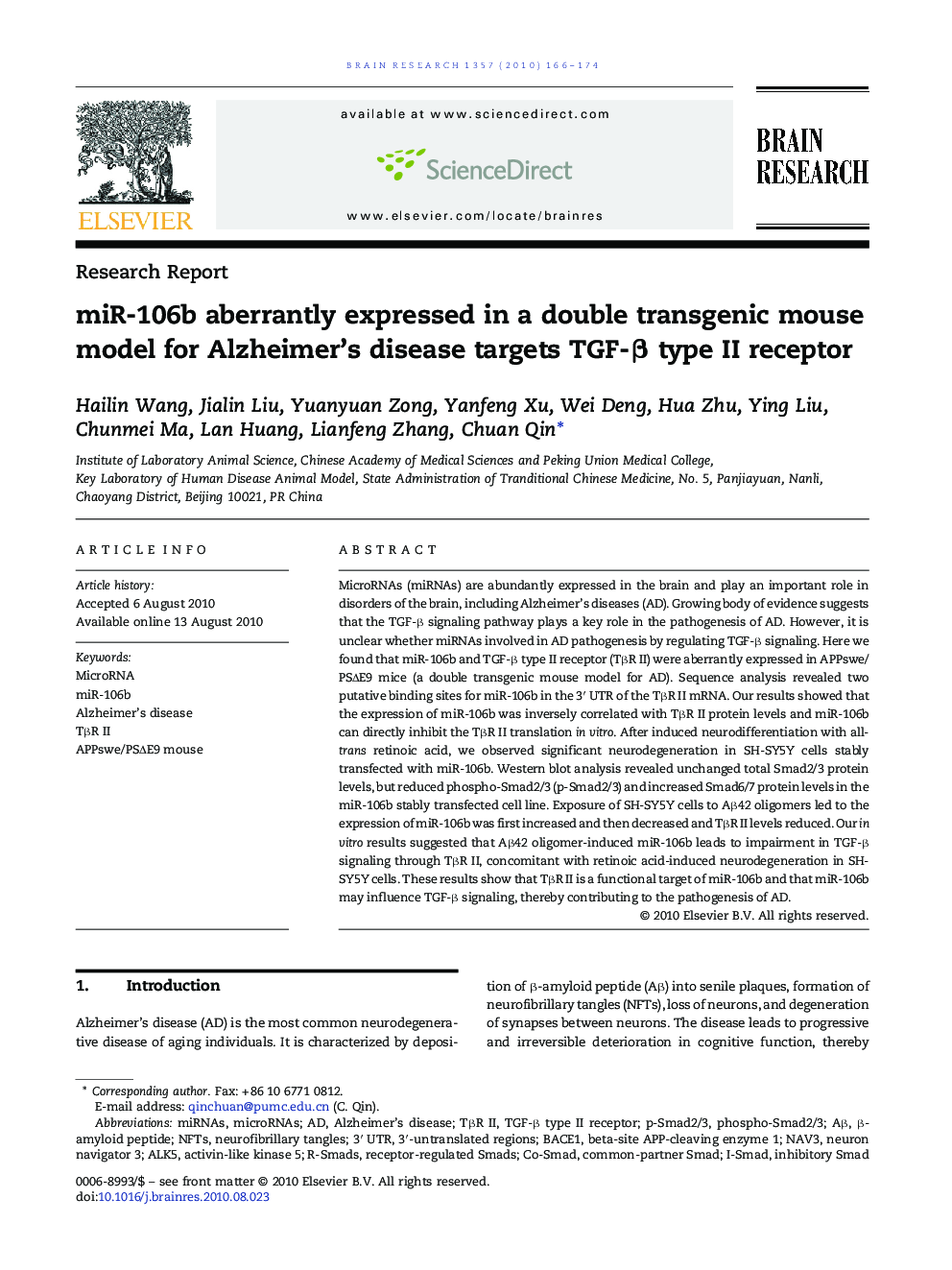| Article ID | Journal | Published Year | Pages | File Type |
|---|---|---|---|---|
| 4326421 | Brain Research | 2010 | 9 Pages |
MicroRNAs (miRNAs) are abundantly expressed in the brain and play an important role in disorders of the brain, including Alzheimer's diseases (AD). Growing body of evidence suggests that the TGF-β signaling pathway plays a key role in the pathogenesis of AD. However, it is unclear whether miRNAs involved in AD pathogenesis by regulating TGF-β signaling. Here we found that miR-106b and TGF-β type II receptor (TβR II) were aberrantly expressed in APPswe/PS∆E9 mice (a double transgenic mouse model for AD). Sequence analysis revealed two putative binding sites for miR-106b in the 3′ UTR of the TβR II mRNA. Our results showed that the expression of miR-106b was inversely correlated with TβR II protein levels and miR-106b can directly inhibit the TβR II translation in vitro. After induced neurodifferentiation with all-trans retinoic acid, we observed significant neurodegeneration in SH-SY5Y cells stably transfected with miR-106b. Western blot analysis revealed unchanged total Smad2/3 protein levels, but reduced phospho-Smad2/3 (p-Smad2/3) and increased Smad6/7 protein levels in the miR-106b stably transfected cell line. Exposure of SH-SY5Y cells to Aβ42 oligomers led to the expression of miR-106b was first increased and then decreased and TβR II levels reduced. Our in vitro results suggested that Aβ42 oligomer-induced miR-106b leads to impairment in TGF-β signaling through TβR II, concomitant with retinoic acid-induced neurodegeneration in SH-SY5Y cells. These results show that TβR II is a functional target of miR-106b and that miR-106b may influence TGF-β signaling, thereby contributing to the pathogenesis of AD.
Research Highlights►miR-106b and TβR II were aberrantly expressed in APPswe/PS∆E9 mice. ►miR-106b can inhibit the translation of TβR II in vitro. ►miR-106b stably transfected cells showed neurodegeneration after induced with RA. ►Smad-mediated TGF-β signaling is inhibited in miR-106b stably transfected cells. ►miR-106b may affect TGF-β signaling, thus contributing to the pathogenesis of AD.
